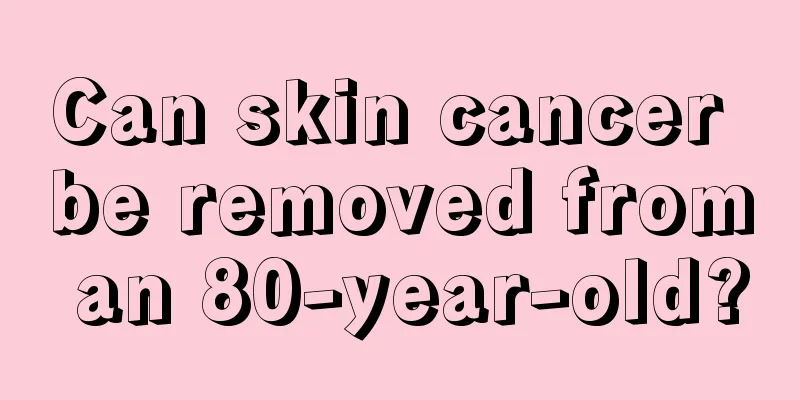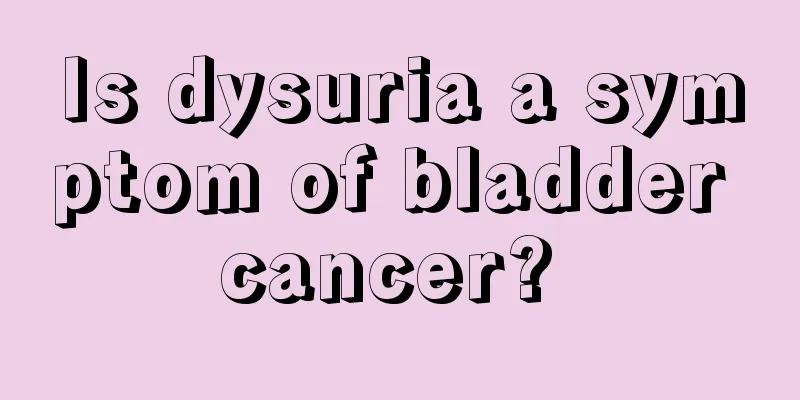Can skin cancer be removed from an 80-year-old?

|
Skin cancer in an 80-year-old person can usually be removed, but individual health conditions, cancer type, and extent of spread must be considered. It is recommended that surgery be performed under the evaluation and guidance of a professional doctor. Skin cancer is divided into basal cell carcinoma, squamous cell carcinoma, and melanoma. Basal cell carcinoma and squamous cell carcinoma are more common types, which usually grow slowly and are not easy to spread. They are often treated with excision and have good recovery after surgery. For elderly people with better physical fitness, excision under local anesthesia is a safer and more effective method for treating skin cancer. Melanoma is more serious and may require more complex treatments, including surgery, radiotherapy, or immunotherapy. Before surgery, a detailed physical examination is required to confirm whether the patient can tolerate surgery. For example, a simple biopsy can determine the type and severity of the cancer. Surgical methods include Mohs micrographic excision, traditional surgical excision, and cryotherapy. Mohs micrographic excision can preserve more healthy skin and effectively and thoroughly remove cancer cells, making it a safer option for elderly patients; traditional surgical excision is suitable for larger or deeper tumor areas; and cryotherapy is suitable for eliminating small, superficial skin cancers. Some patients may need postoperative adjuvant therapy, such as radiation therapy to strengthen cancer control, and regular follow-up to monitor whether the cancer recurs or spreads. Before surgery, a detailed physical examination is required to confirm whether the patient can tolerate surgery. For example, a simple biopsy can determine the type and severity of the cancer. Surgical methods include Mohs micrographic excision, traditional surgical excision, and cryotherapy. Mohs micrographic excision can preserve more healthy skin and effectively and thoroughly remove cancer cells, making it a safer option for elderly patients; traditional surgical excision is suitable for larger or deeper tumor areas; and cryotherapy is suitable for eliminating small, superficial skin cancers. Some patients may need postoperative adjuvant therapy, such as radiation therapy to strengthen cancer control, and regular follow-up to monitor whether the cancer recurs or spreads. When dealing with skin cancer in an 80-year-old, many factors need to be taken into consideration. In particular, the elderly often have multiple chronic diseases, and a comprehensive evaluation is required before excision surgery to reduce the risk. It is recommended to discuss all possible treatment options and prognosis with a professional doctor to make an informed decision. Postoperative care is also very important, ensuring that the incision heals and performing regular skin examinations, and timely follow-up if any abnormalities are found. Patients need to maintain a good lifestyle, avoid exposure to strong sunlight and use sunscreen products regularly to reduce the chance of recurrence of skin cancer. |
<<: What are the early symptoms and precursors of uterine cancer
>>: Symptoms of different types of endometrial cancer
Recommend
What causes dry nose
People occasionally feel that their nose becomes ...
Do you know what the symptoms of anemia are?
Anemia is a relatively common symptom. Anemia doe...
In the late stage of liver cancer, the stomach becomes bigger and harder? It may be related to this
Liver cancer is divided into three stages: early,...
Aerobic respiration and anaerobic respiration
I believe that when you studied biology and clima...
How to wear glasses for myopia and astigmatism
In fact, most people don’t understand the differe...
Will the tattoo fade?
Many people like to get tattoos because tattoos c...
The efficacy and function of magnetic mask
The main ingredient of the magnetic mask is the m...
What are the symptoms of liver patients
Liver disease generally refers to abnormalities i...
Which hospital is best for treating nasopharyngeal cancer
Because nasopharyngeal cancer takes a very long t...
The effects and functions of various colored crystals
Crystal is a very common thing, and natural cryst...
How to adjust when the condition is not good
People eat all kinds of food, and everyone has th...
How to wash fur shoes
Fur shoes are most suitable for wearing in winter...
How to calculate the safe period?
Many female friends do not know how to calculate ...
How to take a bath with roses
To take a rose bath, boil the roses in water for ...
Is it good to eat coriander every day
Coriander is a very common vegetable and is often...









